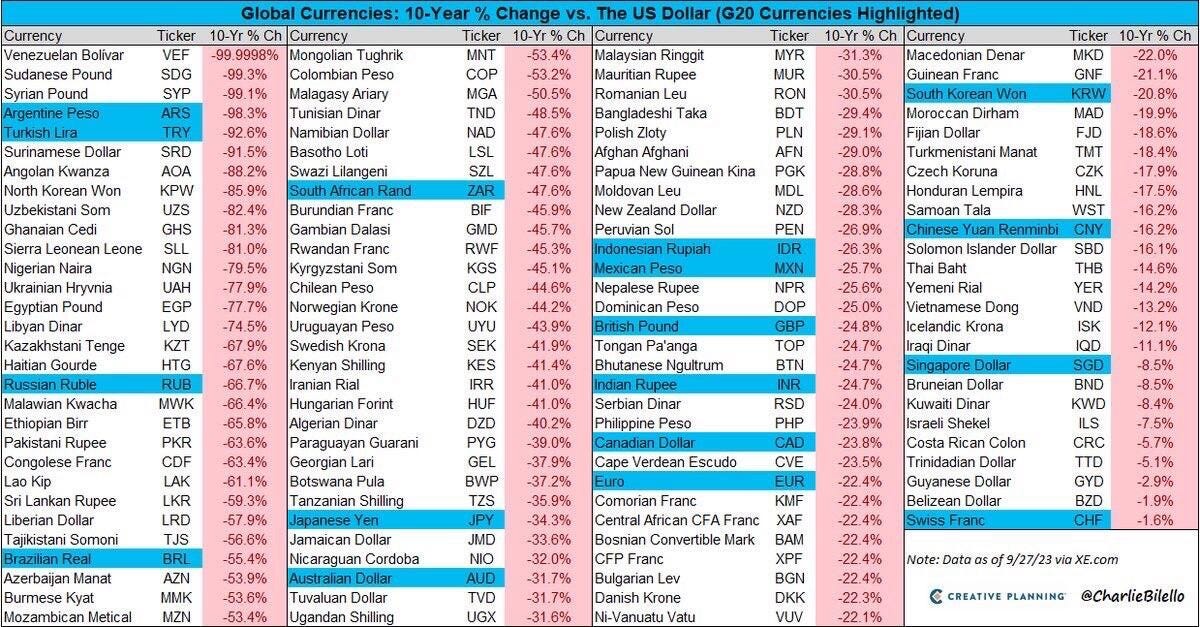Introduction:
Mahatma Gandhi's non-violent protest movement in India stands as a testament to the transformative power of peaceful resistance against oppressive forces. Through a commitment to truth, justice, and non-violence, Gandhi paved the way for India's independence from British colonial rule. Drawing parallels between Gandhi's struggle for freedom and the contemporary movement of Bitcoin as a peaceful protest against the corrupt fiat currency system offers a compelling perspective on the enduring value of non-violent resistance.
Gandhi's Non-Violent Protest Movement:
Gandhi's journey as a leader of the Indian independence movement began in the early 20th century. His philosophy of non-violence, known as "Satyagraha," emphasized the power of truth and love in resisting oppression. The movement gained momentum with acts of civil disobedience, such as the Salt March in 1930, where Gandhi and his followers peacefully marched to the Arabian Sea to protest the British monopoly on salt.
Exposing Colonial Violence and Authoritarianism:
Gandhi's non-violent methods exposed the brutality of the colonial governing power. The British response to peaceful protests, like the Jallianwala Bagh massacre in 1919, where hundreds were killed, drew global attention to the injustice and fueled the demand for Indian self-rule. Gandhi's ability to reveal the moral bankruptcy of authoritarian rule through non-violent means turned the international spotlight on India's struggle.
Winning Freedom Through Peaceful Protest:
Gandhi's success in securing India's independence was rooted in strategic non-violent actions. The Quit India Movement in 1942, a mass protest against British rule, further intensified the demand for independence. The British, facing global scrutiny and a united Indian front, had to reconsider their position. In 1947, India gained freedom through negotiations rather than armed conflict.
Modern Authoritarianism: Attacks on Financial Privacy / Freedom and Bitcoin
United States:
FinCEN Rule Proposal (December 2020): The Financial Crimes Enforcement Network (FinCEN) proposed a rule that would require exchanges to collect personal information for transactions to or from private cryptocurrency wallets. This raised concerns among privacy advocates and cryptocurrency users who saw it as a potential infringement on financial privacy.
Infrastructure Bill (2021): The Infrastructure Investment and Jobs Act in the US contained a provision related to cryptocurrency taxation. There was controversy surrounding the broad definition of "brokers" and the potential impact on non-custodial actors like miners and software developers. The crypto community raised concerns about the broad language and its potential unintended consequences.
Digital Asset Anti-Money Laundering Act (proposed by Elizabeth Warren this month) would:
Extend Antiquated / Oppressive Bank Secrecy Act (BSA) responsibilities, including Know-Your-Customer requirements, to digital asset wallet providers, miners, validators, and other network participants that may act to validate, secure, or facilitate digital asset transactions.
Attack on “unhosted” digital wallets – which allow individuals to bypass AML and sanctions checks – by directing FinCEN to finalize and implement its December 2020 proposed rule, which would require banks and money service businesses (MSBs) to verify customer and counterparty identities, keep records, and file reports in relation to certain digital asset transactions involving unhosted wallets or wallets hosted in non-BSA compliant jurisdictions.
Attack Privacy Via Coin Mixing by Directing FinCEN to issue guidance to financial institutions on mitigating the risks of handling, using, or transacting with digital assets that have been anonymized using digital asset mixers and other anonymity-enhancing technologies.
Strengthen enforcement of BSA compliance by directing the Treasury Department to establish an AML/CFT compliance examination and review process for MSBs and other digital asset entities with BSA obligations and directing the Securities and Exchange Commission and Commodity Futures Trading Commission to establish AML/CFT compliance examination and review processes for the entities they regulate.
Extend BSA rules regarding reporting of foreign bank accounts to include digital assets by requiring United States persons engaged in a transaction with a value greater than $10,000 in digital assets through one or more offshore accounts to file a Report of Foreign Bank and Financial Accounts (FBAR) with the Internal Revenue Service.
Mitigate the “illicit finance risks” of digital asset ATMs by directing FinCEN to ensure that digital asset ATM owners and administrators regularly submit and update the physical addresses of the kiosks they own or operate and verify customer and counterparty identity.
European Union:
Markets in Crypto Assets (MiCA) Regulation Proposal: The European Union introduced a comprehensive regulatory framework for cryptocurrencies known as MiCA which is due to take effect in 2024. This proposal seeks to regulate the issuance and trading of digital assets within the EU. While aiming to provide legal clarity, some critics argue that it may stifle innovation and impose burdensome requirements on crypto projects, not to mention impede financial freedom and privacy.
Anti-Money Laundering (AML) Regulations: Various European countries have been implementing or considering stricter AML regulations on cryptocurrency exchanges. The EU's Fifth Anti-Money Laundering Directive (5AMLD) extended AML requirements to cryptocurrency exchanges and wallet providers, aiming to prevent illicit activities and enhance transparency.
Taxation Guidelines: Different EU countries have been exploring or implementing cryptocurrency taxation guidelines. This involves the taxation of gains from cryptocurrency transactions, with varying degrees of clarity and enforcement. All of this acts to discourage the use of freedom money.
As Whitney Webb said in a recent podcast, financial freedom is the new enemy:
“There is a fight being had right now about the future of Bitcoin and you have to decide which side you’re on.” — Whitney Webb
Bitcoin as a Peaceful Protest:
Drawing parallels to Gandhi's non-violent resistance, Bitcoin emerges as a modern-day tool for peaceful protest against the corrupt fiat currency system. Bitcoin, a decentralized digital currency, challenges the centralized control of traditional currencies by governments and financial institutions.
Examples of Bitcoiners' Peaceful Protest:
Financial Freedom: Bitcoin allows individuals to have control over their finances without traditional banking systems. This financial autonomy serves as a peaceful protest against centralized government / corporate monetary control.
Inflation Hedge: Bitcoin's fixed supply of 21 million coins protects against inflation, providing a global hedge against the continuous devaluation of fiat currencies. This resistance to economic manipulation serves as a form of peaceful protest.
Global Access: Bitcoin transcends borders, enabling financial transactions without dependence on a specific government or financial system. This global accessibility empowers individuals to engage in peaceful economic transactions without interference from rent-seeking intermediaries, including governments and corporations. Bitcoin is Hope.
Defending Freedom Through Peaceful Means:
Similar to Gandhi's non-violent resistance, Bitcoiners can defend their freedom to transact with Bitcoin through education, advocacy, and community building. They can defend their freedom by continuing to acquire and hold Bitcoin in a self-sovereign way (not holding Bitcoin on exchanges, or buying ETF’s). The use of Bitcoin for payments on the Lightning Network or on-chain to grow the circular economy, slowly replacing corrupt fiat currency in economic transactions, is yet another way we can fight for our freedom. Promoting the benefits of decentralization, financial sovereignty, privacy and true financial freedom fosters a collective understanding of the value of Bitcoin as a tool for peaceful protest.
Conclusion:
The journey from Gandhi's non-violent struggle for India's independence to the contemporary use of Bitcoin as a peaceful protest against the corrupt fiat currency system illustrates the enduring power of non-violent resistance. Freedom is not a gift but a right that must be claimed and defended. By embracing Bitcoin and promoting financial autonomy, individuals can contribute to a world where freedom is preserved through peaceful resistance against oppressive systems.
Not financial or legal advice, for entertainment only, do your own homework. I hope you find this post useful as you chart your personal financial course and Build a Bitcoin Fortress in 2023.
Thanks for following my work. Always remember: freedom, health and positivity!
Please also check out my Bitcoin Fortress Podcast on YouTube here and on all your favorite streaming platforms. I do a weekly Bitcoin news update every week on current items of interest to the Bitcoin community, usually 30 to 60 minutes depending on the number of topics to cover. Please check it out if you haven’t already. Also now on Fountain, where you can earn Bitcoin just for listening to your favorite podcasts.
Follow me on Nostr:
npub122fpu8lwu2eu2zfmrymcfed9tfgeray5quj78jm6zavj78phnqdsu3v4h5
If you’re looking for more great Bitcoin signal, check out friend of the show Pleb Underground here.
Lightning tips appreciated here.







